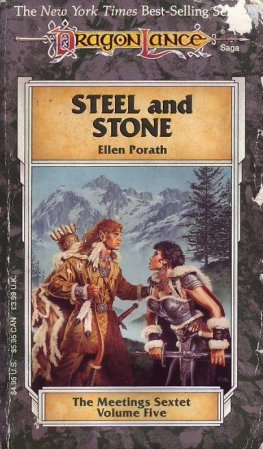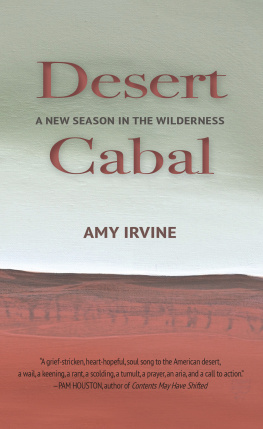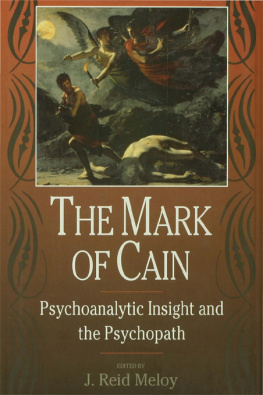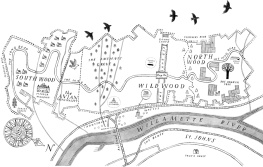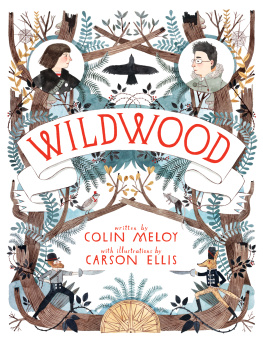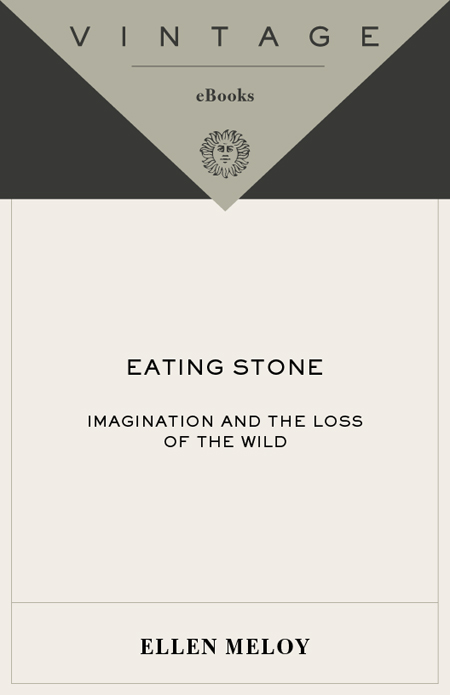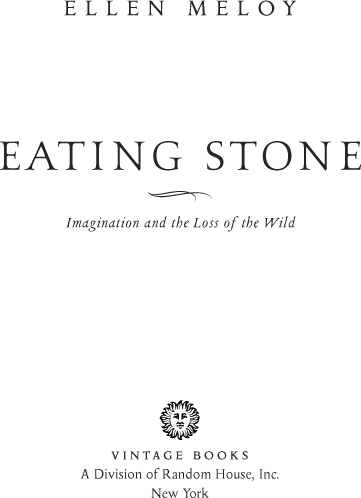Acclaim for Ellen Meloy's
EATING STONE
Recipient of The
Utah Book Award
The William Burroughs Association Award
of the National Museum of History
This [book] is no more about sheep alone than Peter Matthiessen's is about snow leopards or Herman Melville's about whales, for Meloy is hot on the trail of what it is that happens when humans lose their connections with nature, and she offers gentle instructions for reconnecting.
Kirkus Reviews
Ellen Meloy's Eating Stone is an incomparable work of power, beauty, wisdom, tenderness, and great humor. This book reminds me of what it is I love about reading great books: time stops, and a deeper understanding, a deeper way of being, inhabits the reader. Ellen is missed deeply, and all the more so when reflected in the beauty of these pages.
Rick Bass, author of Caribou Rising
Masterful. Between witty, self-disclosing, and metaphorspiked field notes, Meloy offers provocative reflections on restoration ecology and the politics of wildlife and muses over how the loss of animals and wilderness diminishes our imagination and sense of wonder.
Booklist
Throughout Eating Stone one can feel Meloy's intensity and nergy, her to-the-marrow astonishment of the natural world. Her prose takes flight and soars, offering exhilarating vi sions and vantage points.
The Oregonian
Through the lens of mountain sheep, Ellen Meloy looked on the earth and saw that it was good. About her fellow humans, she was less pleased, yet compassionate and wry. There's fire in this prose, the energy of a writer in love with language and with our stony, watery planet.
Scott Russell Sanders, author of Hunting for Hope
Emotional, visceral. Meloy, like the best naturalists, is a keen observer of the landscape and the habitat it provides.
Publishers Weekly
Lovely. Few writers can match Ellen Meloy's passion for the animals that roam the backsides of the backwoods.
Albuquerque Journal
In telling the story of a lost flock of mountain sheep, Meloy leads us through that spellbound threshold between humanity and the rest of nature. There, in the radiance of her patient, enthralling observation, we encounter the mortality of the natural world, that increasingly familiar place where deep landscape falls farther and farther away, always at the point of loss.
Honor Moore, author of Red Shoes
ELLEN MELOY
EATING STONE
A recipient of a Whiting Foundation Award in 1997, Ellen Meloy was a native of the West and lived in California, Montana, and Utah. Her previous book, The Anthropology of Turquoise, was a finalist for the Pulitzer Prize and won the Utah Book Award. Meloy spent most of her life in wild, remote places; at the time of her sudden death in November 2004 she and her husband were living in southern Utah. In her honor, her friends and family founded The Ellen Meloy Fund for Desert Writers, which supports work that reflects the spirit and passions of her work.
ALSO BY ELLEN MELOY
Raven's Exile: A Season on the Green River
The Last Cheater's Waltz:
Beauty and Violence in the Desert Southwest
The Anthropology of Turquoise:
Meditations on Landscape, Art, and Spirit
FOR MARK
Chid naanaiish
t'aa naacb idgi
nilbeehzin?
I have always longed to be a part of the outward life, to be out there at the edge of things, to let the human taint wash away in emptiness and silence as the fox sloughs his smell into the cold unworldliness of water; to return to the town as a stranger. Wandering flushes a glory that fades with arrival.
JOHN BAKER , The Peregrine
SHEEP
The Virgin River vanishes
in canyon rock
leaving tear stains
for the mountain sheep
who graze on stone,
who know the earth is steep
in every direction, who know
geometry is merely
the shape of stone,
empty space,
memory of hooves.
We want to ask
How can you live here?
But we drive fast
past their answer,
our attention always
ahead of us.
KENNETH BREWER
PROLOGUE
On one of my last winter days with the desert bighorns, they no longer kept me out of their world. With motions I had come to know as an exquisite union of liturgy and physics, they closed the distance between us and herded me toward a threshold, a place best described as a hairsbreadth.
Their slender legs rose like smoke from stone, curving into pale rumps. The rump carried all the muscle, the force that was capable of pushing their stocky bodies up a sheer cliff with nothing beneath their hooves but air and a foothold barely larger than my lower lip. This is what you will find at the center of the desert bighorn: dry, vertical space. On the flats, they seem as awkward as square wheels.
Their haunches held but small tensions now. The sheep stood about like mildly bored ballerinas. Black hooves found cusps of white snow. Breath condensed in milky wraiths. The wind did not matter to them. They moved serenely among themselves, brushing flanks warm with blood, weaving me toward that breach of transmutation.
Something in their amber eyes told me that I was about to change, to be given a language without tongues. I wanted to leap into that wild sidetheir sidethen bring back their startling news from the other-than-human world. But I was weighted with a wobbly confusion about how to see, how to behave.
After so many days among the bighorns, in the end it seemed best to quiet the mind and act like a rock. I am simply here, I thought, here at the periphery of several hundred pounds of Ovis with lovely rumps and eyelashes as delicate as fish bones.
I then became the first rock in history to be overcome with feeling, a serene aching aimed at nothing in particular, only a cobalt sky with no edge but winter's cold and a river beside us that shook out its light in full dazzle, a river rimmed with ice and a band of rare mammals whose own biology and history could have lost them to the world.
THE BLUE DOOR BAND
Homo sapiens have left themselves few places and scant ways to witness other species in their own world, an estrangement that leaves us hungry and lonely. In this famished state, it is no wonder that when we do finally encounter wild animals, we are quite surprised by the sheer truth of them.
Nothing speaks the truth quite like a 220-pound desert bighorn ram mounted atop a standing female, thrusting his heavy pelvis back and forth like there was no tomorrow.
It was the rut. Males, usually solo or in bachelor bands, had joined the females, which for the rest of the year lived separately with random groups of juveniles. The rams were glossy, fat, spirited. Their thick, curled horns and heavy testicles carried a few million years of evolutionary momentum. Here in the canyon, not much else mattered but the bone and muscle needed to transport these body parts. On four hooves rode massive sperm factories.
I had put the river between myself and the rutting grounds, not that I was much more than wallpaper as the sheep copulated. I shared guilt over trespass with other voyeurs: the few subdomi-nant rams, unlucky in love; six nearby ewes; a pair of lecherous ravens perched on a boulder.
The mating unfolded quickly but with a ritualized certainty. Among a species with a complex repertoire of social behaviors, the penalty of ambiguity is reproductive failure.


